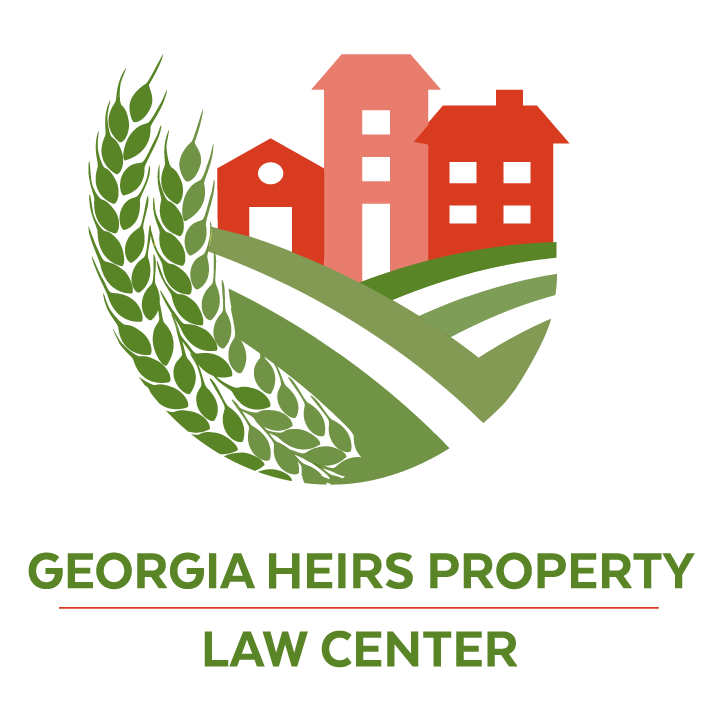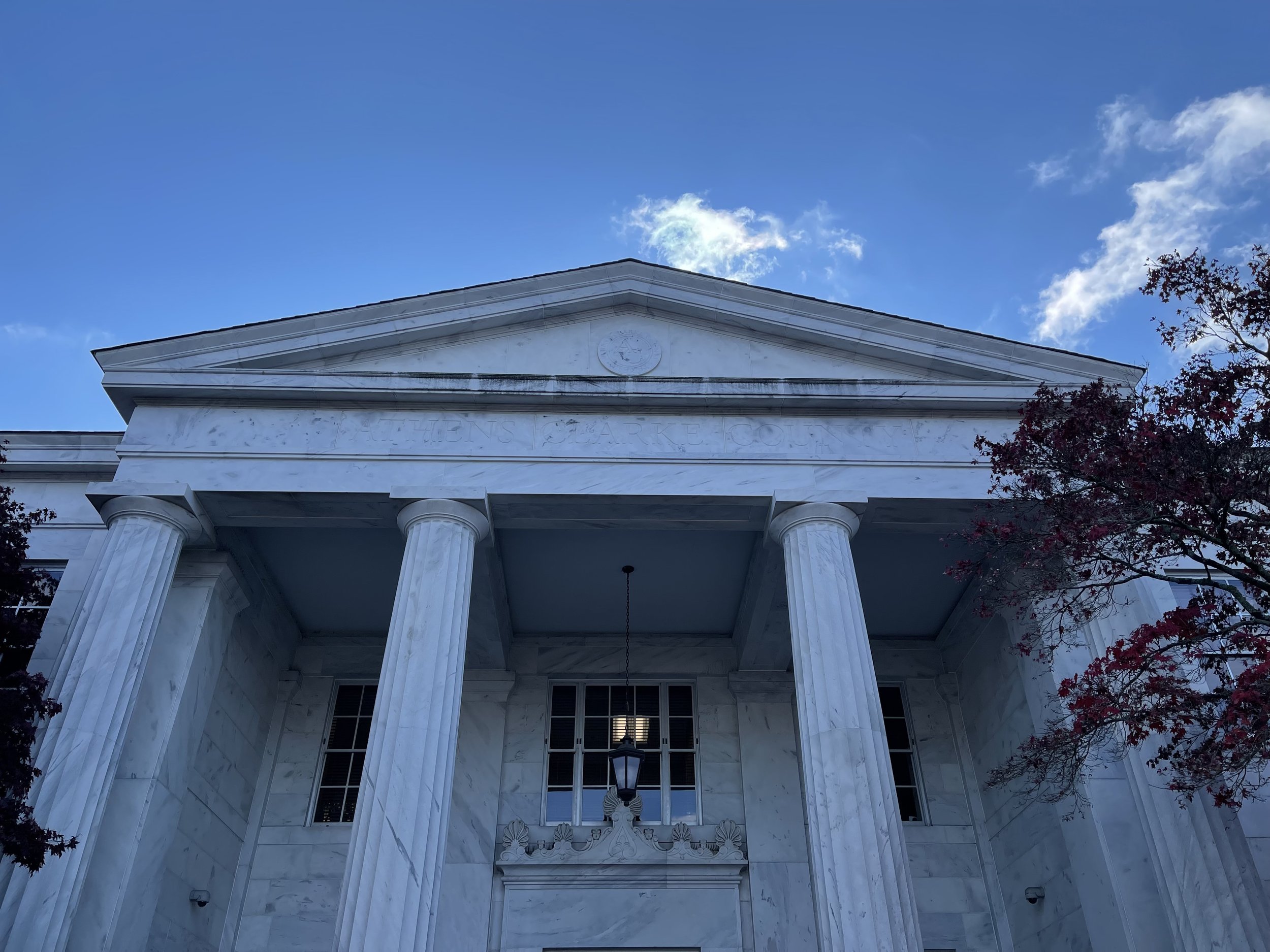Nonprofits, Local Governments and Municipalities:
Become a Client
Heirs property not only limits a family’s ability to build wealth – it also thwarts the efforts of local governments, municipalities, and nonprofits to revitalize neighborhoods, rebound after natural disasters, preserve green space, and unlock the tax base for economic development. Whether you’re focusing on one neighborhood or community-wide, contact info@gaheirsproperty.org for more information on:
Educational Workshops- for Elected Officials, Community Leaders, and/or Residents.
Title Reviews- for an entire block or for individual applicants to your home repair or farm/timber program, the Center can determine the “condition of the title” and potential steps to resolve heirs property issues.
Title Clearing- for each heirs property, the Center can help determine who has an ownership interest in the property and work to clean up the titles through negotiated agreements, probate, quiet title actions, Trust/LLC setup, and other legal services.
Estate Planning- for individuals in your program or community, the Center provides proper estate planning including a will, advanced health care directive, financial power of attorney. Proper estate planning prevents creation of heirs property; preserves the public and private subsidies invested in a home or land; prevents blight; and fosters the generational transfer of wealth.
Clarifying property ownership for residents is a critical component of every community’s land retention, affordable housing, economic development, and community revitalization efforts. Title Assessments can be procured one-at-a-time or in batches. After the Center has assessed the condition of a title, a cost-estimate can be created for Title Remediation for each property. Individual estate planning services are priced based on the amount of time required to complete the process for each client.
Partnering with the Center
The Center partners with nonprofits and municipalities through contracts-for-services and collaborative grants to cover these expenses. Before contacting the Center to discuss partnership opportunities, please do the following:
FAMILIARIZE YOURSELF WITH THE CENTER
Review the material on the Center’s website, such as the annual reports, publications, and webinars. Understanding the Center’s work can help you decide if the Center is the right partner for your organization.IDENTIFY A FUNDING SOURCE
As a not-for-profit law firm, the Center requires funding to conduct outreaches and provide legal services. Outreaches frequently result in calls to the Center requesting legal services. Therefore, funding for both is required. Federal and state organizations often have housing programs that fund heirs property resolution and prevention. Check for existing or potential housing programs that your organization may have access to. Funds from these programs can be used to finance the Center’s work in your community.INDENTIFY THE COMMUNITY YOU ARE SERVING
Having a geographic or demographic focus for program participants can help you and the Center identify what resources may be needed. It is equally important that your organization already has good rapport with the people you seek to serve. If no rapport has been established, identify churches and other community organizations that can help connect you to the community.IDENTIFY THE “CARROT”
Developing a partnership with the Center requires invested participants. This means your organization must identify the incentive or “carrot” for the homeowners you want to work with. For example, is there a beneficial program like home repair that they would have access to if they obtained clear title?
After following these steps, if the Center seems like a good partnering fit, click the button below.



